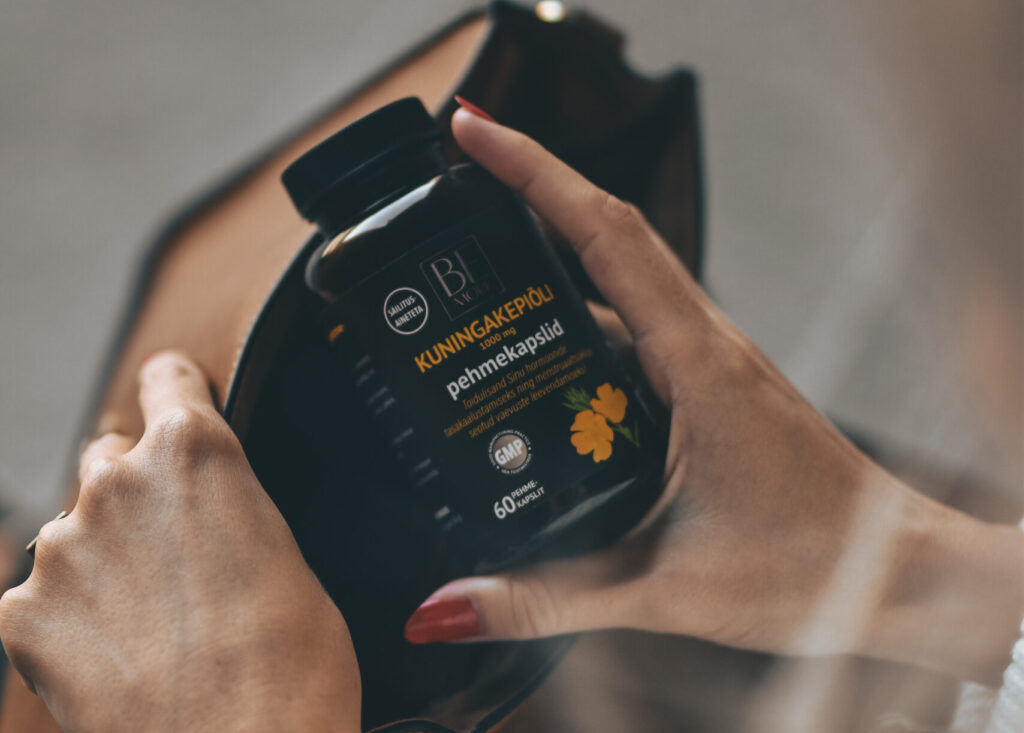Why is hormonal balance important for a woman?
15. October, 2020

Lifestyle
Hormones regulate the functioning of the whole body, affecting our mood, appearance, weight and much more – so it is very important that the balance is restored. Read more about what is a hormonal imbalance, what are its symptoms and how evening primrose oil helps to reduce inconveniences.
What is a hormonal imbalance?
Hormones are your body’s chemical messengers. These chemicals travel around your bloodstream telling tissues and organs what to do. They help control many of your body’s major processes, including metabolism and reproduction. When you have a hormonal imbalance, you have too much or too little of a certain hormone and even tiny changes can have serious effects throughout your whole body.
Your hormones play an integral role in your overall health. Because of that, there’s a broad range of symptoms that could signal a hormonal imbalance, that will depend on which hormones or glands aren’t working properly.
Women normal hormonal cycle also changes naturally during puberty, pregnancy, breastfeeding and menopause. Inevitably, we cannot always control what is going on in our bodies, but thanks to this knowledge, we can help ourselves better.
What are the symptoms of hormonal imbalance?
- Changes in hair growth: Thinning or loss of hair. Also excessive hair on the face, chin, or other parts of the body
- Skin problems: Acne on the face, chest or upper back. Formation of skin tags, darkening of skin, especially along neck creases, in the groin, and underneath breasts.
- Changes of menstruation and flow: Strong or irregular menstruation. Heavy or irregular periods, including missed periods, stopped period, or frequent period can also indicate to hormonal imbalance. Excessive vaginal dryness and painful sex can also be symptoms.
- Physical changes: Hormonal imbalance is indicated by sudden weight gain or difficulty in losing it. Night sweats are also worth keeping in mind.
What is Evening Primrose Oil?
Evening primrose is a plant that’s native to Europe and North America. It has a long history of medicinal uses. Native Americans, for example, used its leaves, roots, and seedpods in preparations for hemorrhoids, bruises, wounds, and skin problems.
What are the benefits of Evening Primrose Oil?
For preventing menstruation and pregnancy related problems
During a woman’s premenstrual period, she may experience breast tenderness, bloating, water retention, acne, depression, irritability, foggy thinking and headaches — these symptoms reportedly can subside after using evening primrose oil. An omega-3 fatty acid, GLA, has been shown to increase the production of cervical mucus, a factor in successful reproduction.
To reduce skin problems
Evening Primrose oil improves the overall condition of the skin, helping to make it more smooth, elastic and moisturized. Dermatologists recommend royal jelly as part of an anti-acne treatment regimen because its effects have been useful both internally and externally. Acne can be a problem for many, especially for teenagers who who are dealing with fluctuating hormones during puberty. A hormonal imbalance can lead to acne in teens and adults alike, but many people don’t realise that acne can be treated naturally. This is especially true for women because they go through regular periods of hormone fluctuations — this includes the menstrual cycle and menopause. In addition to acne, Evening Primrose Oil can also helps to heal eczema and wounds.
To improve the the hair condition
Evening Primrose Oil improves hormonal levels, which also helps against hair loss very well – it moisturizes and promotes their growth. Right hormonal balance can also mean that hair growth in the wrong places can be reduced.
When it should not be consumed?
Evening primrose oil is generally safe when used in recommended dosages. If you take medication for depression, blood thinning or blood pressure medication, speak to your health care provider before consuming evening primrose oil. It’s probably best not to take evening primrose oil in pregnancy and breastfeeding, as we can’t be sure of its safety.
